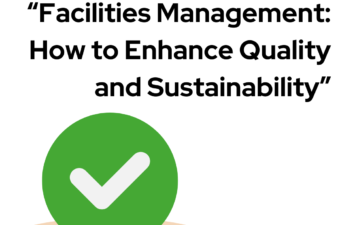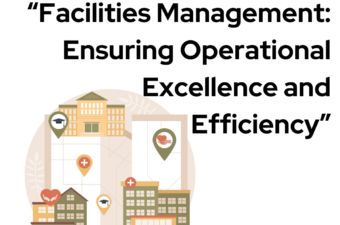
University life is more than just lectures, exams, and student societies. Behind the scenes, there is a complex web of operations that ensures the campus runs smoothly and that students, staff, and visitors have the best possible experience. Two crucial but often overlooked components of this infrastructure are catering and estates management. These services are vital to the daily functioning of a university, impacting everything from the food students eat to the condition of the buildings where they learn and live. In this blog post, we’ll delve into what goes on behind university catering and estates management, highlighting the challenges, responsibilities, and importance of these essential services.
1. The Role of University Catering
University catering services are responsible for providing meals and refreshments to students, staff, and visitors. This can include everything from dining halls and cafes to event catering and vending machines.
- Dining Services: At the heart of university catering are the dining services, which typically include multiple dining halls across campus. These facilities serve thousands of meals each day, catering to a diverse student body with varying dietary needs and preferences. Menu planning, food sourcing, and ensuring high standards of hygiene and nutrition are all critical aspects of managing these services.
- Cafes and Snack Bars: In addition to dining halls, many universities operate cafes and snack bars where students can grab a quick bite or a coffee between classes. These venues often have to balance quality with convenience, offering a range of options from healthy snacks to indulgent treats.
- Event Catering: Universities host a wide range of events throughout the academic year, from formal dinners and graduation ceremonies to conferences and student socials. Catering for these events requires careful planning and coordination, ensuring that the food and drink provided are appropriate for the occasion and meet the expectations of attendees.
- Sustainability Initiatives: Increasingly, university catering services are being challenged to adopt more sustainable practices. This includes reducing food waste, sourcing local and organic ingredients, offering more plant-based options, and minimising the use of single-use plastics. Balancing sustainability with cost and operational efficiency is a key challenge for catering managers.
2. The Role of Estates Management
Estates management covers a wide range of responsibilities, from maintaining buildings and grounds to managing energy use and ensuring the safety and accessibility of the campus.
- Building Maintenance: One of the primary responsibilities of estates management is the maintenance of university buildings. This includes regular inspections, repairs, and renovations to ensure that facilities are safe, functional, and up to date. Whether it’s fixing a leaky roof, upgrading heating systems, or repainting classrooms, estates teams work tirelessly to keep the campus in good condition.
- Grounds Maintenance: The appearance and upkeep of the university grounds also fall under estates management. This includes landscaping, lawn care, and the maintenance of outdoor spaces such as sports fields and gardens. Well-maintained grounds not only enhance the aesthetic appeal of the campus but also provide spaces for recreation and relaxation.
- Energy Management: Universities are major consumers of energy, and managing this consumption is a critical task for estates teams. This involves monitoring energy use, implementing energy-saving measures, and exploring renewable energy options. Many universities have set ambitious targets for reducing their carbon footprint, making energy management a top priority.
- Health and Safety: Ensuring the health and safety of everyone on campus is another key responsibility of estates management. This includes conducting risk assessments, managing fire safety systems, and ensuring compliance with health and safety regulations. Estates teams also play a crucial role in emergency planning and response, ensuring that the university is prepared for any eventuality.
3. The Challenges of University Catering and Estates Management
Managing catering and estates services at a university is a complex task that comes with its own set of challenges. These challenges can vary depending on the size of the university, the age of its buildings, and the expectations of its students and staff.
- Budget Constraints: One of the biggest challenges faced by both catering and estates management teams is working within budget constraints. Universities are often under pressure to keep costs down while maintaining high standards, which can be difficult to achieve. This requires careful planning, efficient use of resources, and a focus on value for money.
- Meeting Diverse Needs: Universities are home to a diverse population, and catering and estates services must meet a wide range of needs. This includes catering for different dietary requirements, providing accessible facilities for people with disabilities, and ensuring that the campus is welcoming to students from different cultural backgrounds.
- Sustainability Pressures: As mentioned earlier, there is increasing pressure on universities to adopt sustainable practices. This can be challenging, particularly when trying to balance sustainability with other priorities such as cost and convenience. Catering and estates teams must continually explore new ways to reduce their environmental impact while still meeting the needs of the university community.
- Dealing with Ageing Infrastructure: Many universities have buildings that are several decades, if not centuries, old. Maintaining these ageing structures can be a significant challenge, particularly when it comes to upgrading them to meet modern standards of energy efficiency and accessibility. Estates teams must balance the need to preserve historic buildings with the practicalities of keeping them functional and safe.
4. Innovations in University Catering and Estates Management
Despite the challenges, university catering and estates management are areas that are ripe for innovation. New technologies and approaches are helping universities improve their services and meet the evolving needs of their communities.
- Smart Campus Technology: Many universities are adopting smart campus technologies to improve the efficiency and effectiveness of their estates management. This includes the use of sensors and data analytics to monitor energy use, manage building maintenance, and optimise space utilisation. By harnessing the power of technology, estates teams can make more informed decisions and improve the overall management of the campus.
- Sustainable Food Initiatives: In response to growing demand for sustainable food options, many university catering services are introducing initiatives such as meat-free Mondays, farm-to-table programmes, and partnerships with local producers. These initiatives not only reduce the environmental impact of catering services but also promote healthier eating habits among students.
- Student Engagement: Engaging students in the management of catering and estates services is another area of innovation. Some universities are involving students in decision-making processes, allowing them to have a say in the types of food offered in dining halls or the sustainability practices adopted on campus. This not only gives students a greater sense of ownership but also helps ensure that services are aligned with their needs and preferences.
- Flexible and Adaptive Spaces: As the way students learn and interact continues to evolve, there is a growing need for flexible and adaptive spaces on campus. Estates teams are increasingly focused on creating multipurpose spaces that can be easily reconfigured to meet different needs, whether it’s for lectures, group study, or social events. This requires a forward-thinking approach to space planning and management.
5. The Importance of Collaboration
Collaboration is key to the success of university catering and estates management. These services do not operate in isolation; they are part of a larger ecosystem that includes academic departments, student services, and external partners.
- Working with Academic Departments: Catering and estates teams must work closely with academic departments to ensure that their services support the university’s educational mission. This includes providing spaces that are conducive to learning, catering for academic events, and ensuring that the campus environment is welcoming and inspiring.
- Engaging with Students and Staff: Engaging with students and staff is essential for understanding their needs and expectations. Regular feedback, surveys, and focus groups can help catering and estates teams identify areas for improvement and ensure that their services are meeting the needs of the university community.
- Partnering with External Providers: Universities often work with external providers to deliver catering and estates services. This can include partnering with food service companies, contractors for building maintenance, and suppliers of sustainable products. Effective partnerships are built on clear communication, shared goals, and a commitment to quality.
6. The Future of University Catering and Estates Management
As universities continue to evolve, so too will the roles of catering and estates management. The future will likely see even greater emphasis on sustainability, technology, and student engagement.
- Sustainable Campuses: Sustainability will continue to be a major focus for university catering and estates management. This will involve not only reducing the environmental impact of these services but also integrating sustainability into the curriculum and campus culture. Universities will need to lead by example, demonstrating how sustainability can be achieved in practice.
- Technology Integration: The integration of technology into catering and estates management will continue to grow, with smart campus initiatives becoming more widespread. This will involve not only the use of technology to improve efficiency but also to enhance the student experience, such as through the use of mobile apps for ordering food or booking study spaces.
- Resilient and Adaptive Services: The events of recent years, including the COVID-19 pandemic, have highlighted the importance of resilience and adaptability in university services. Catering and estates teams will need to be prepared to respond to changing circumstances, whether it’s a shift to online learning or the need for enhanced health and safety measures.
University catering and estates management may not always be in the spotlight, but they are vital to the smooth functioning of a university. These services ensure that students, staff, and visitors have access to quality food, safe and well-maintained facilities, and a welcoming campus environment. As universities face new challenges and opportunities, catering and estates teams will continue to play a crucial role in supporting the educational mission and enhancing the overall university experience. By embracing innovation, sustainability, and collaboration, these services can continue to evolve and meet the needs of the university community for years to come.




